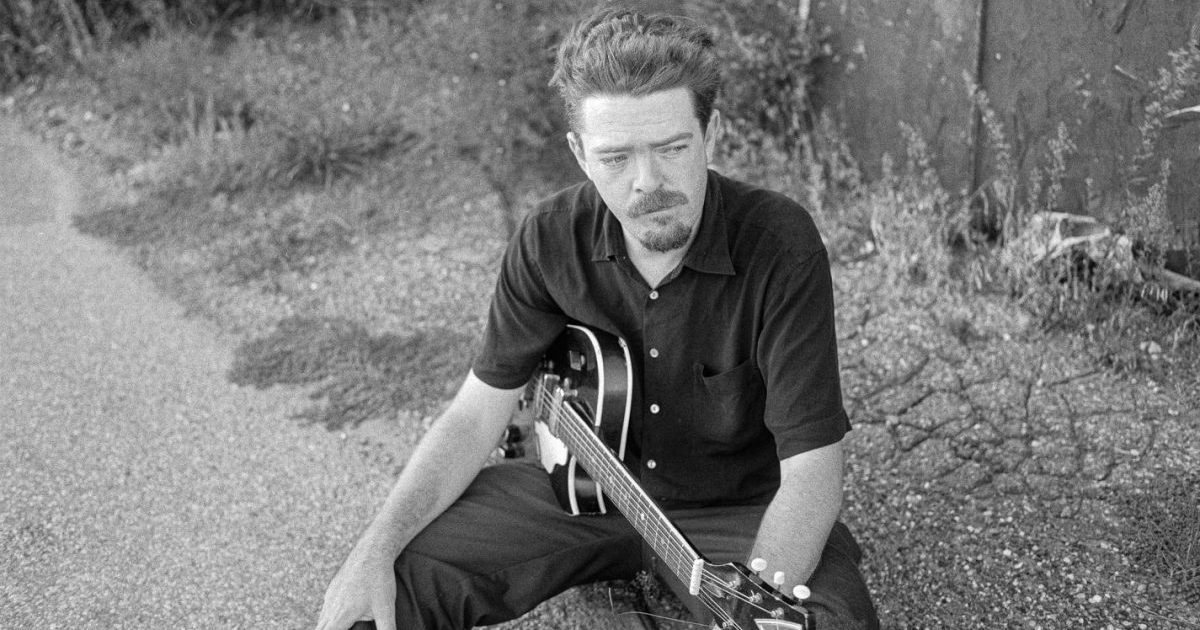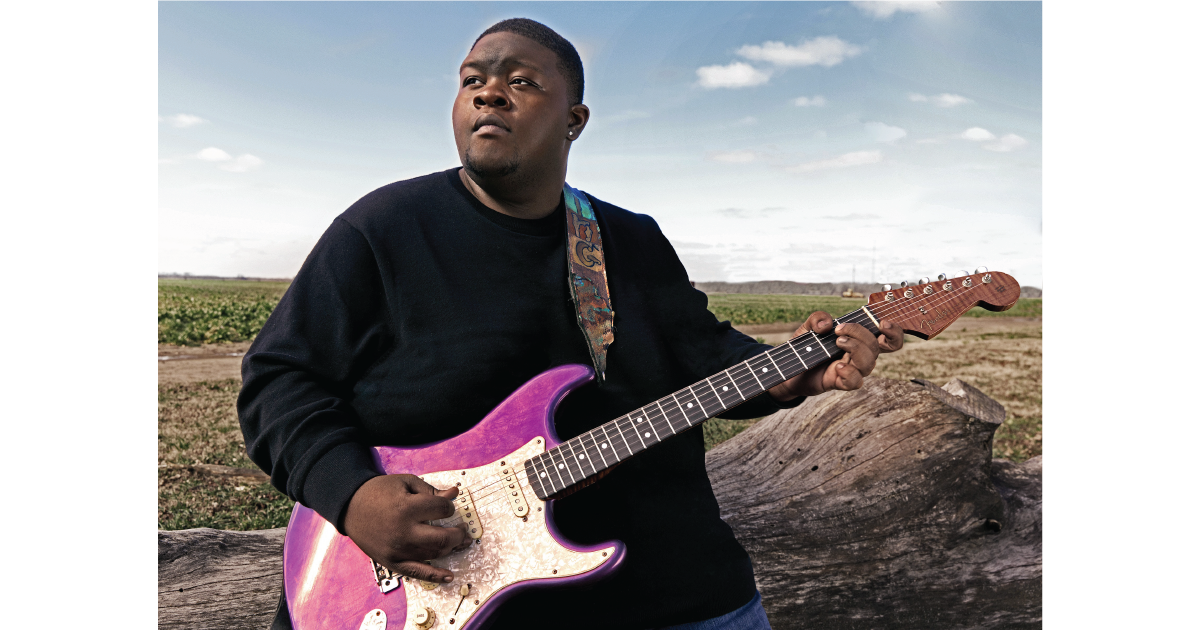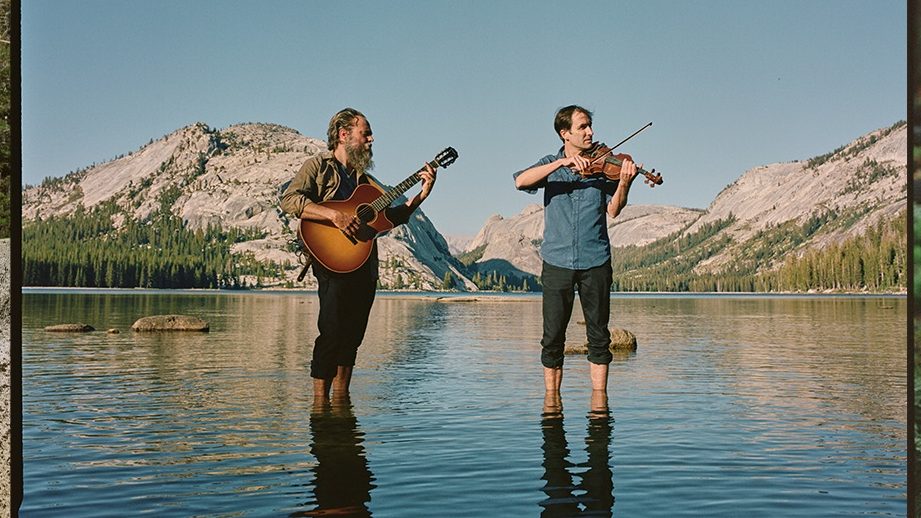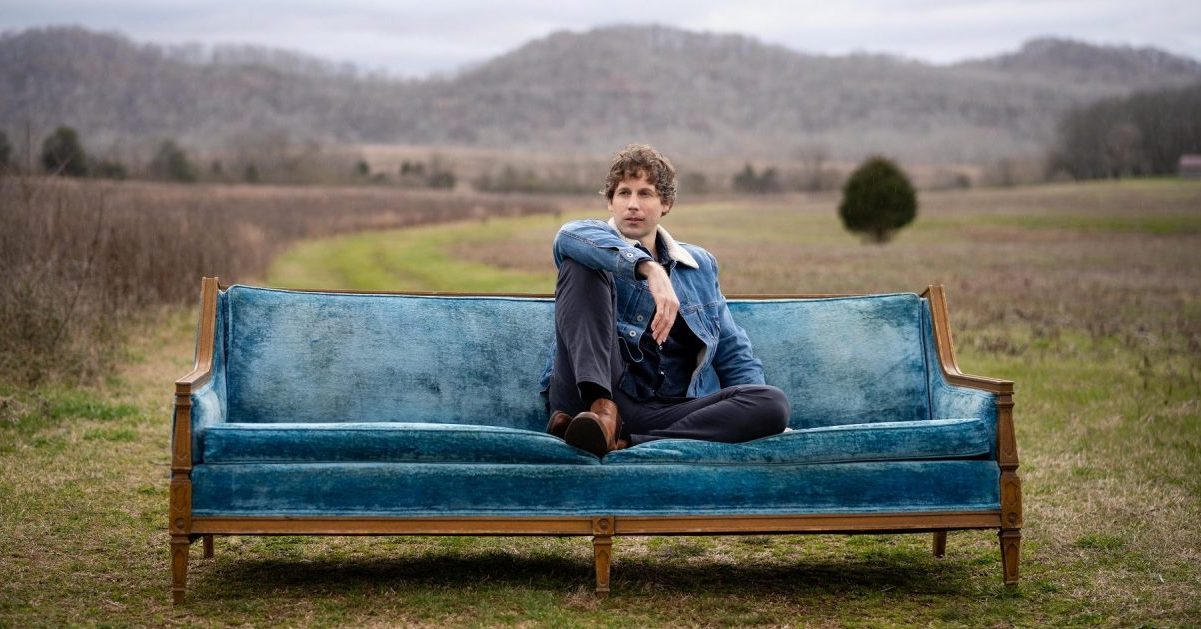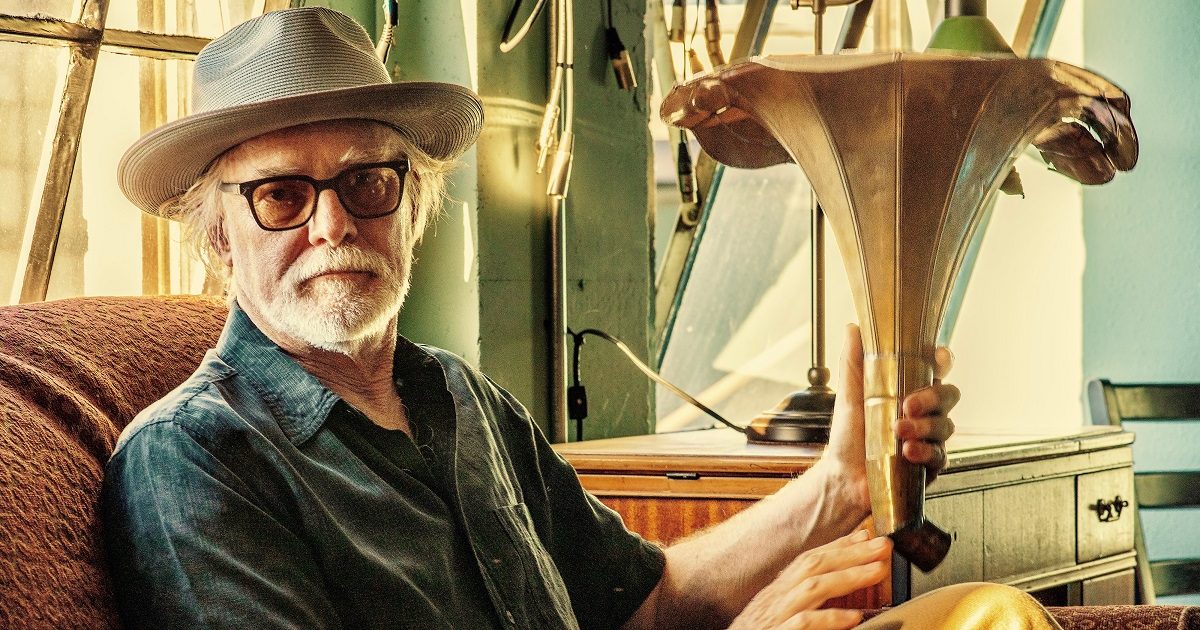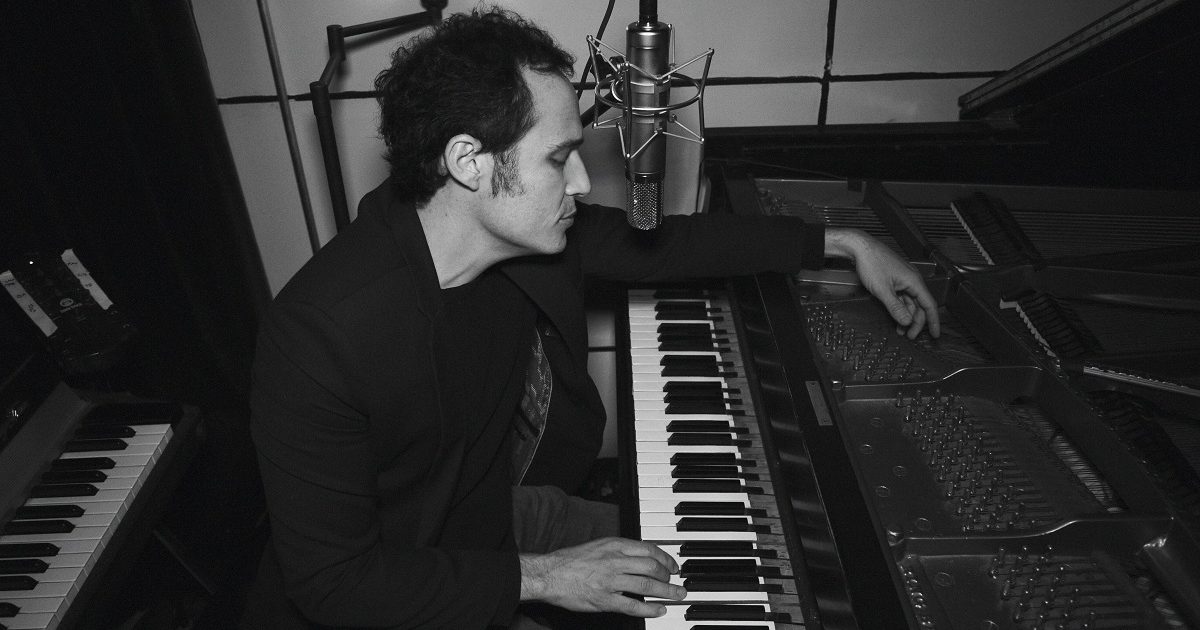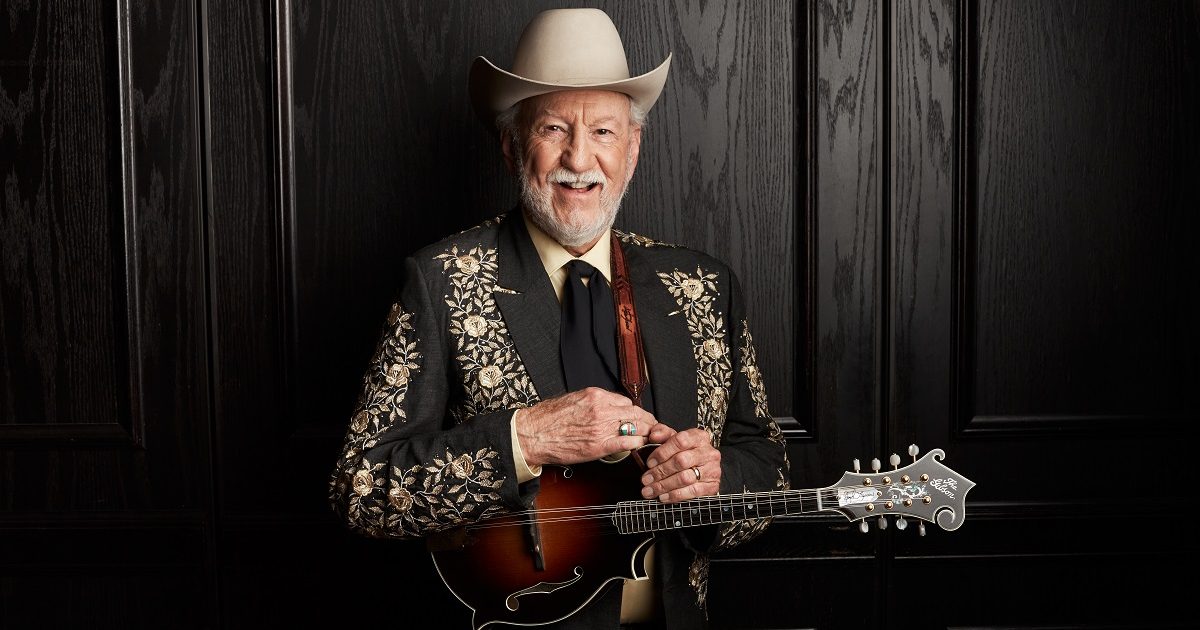WATCH: Trousdale, “Always, Joni”
Artist: Trousdale
Hometown: Los Angeles BUT we’re all originally from different places (Georgia from Los Angeles; Lauren from Bay City, Michigan; Quinn from Saratoga Springs, New York)
Song: “Always, Joni”
Album: What Happiness Is
Release Date: November 12, 2021
In Their Words: “For me, ‘Always, Joni’ is about how a great song at the right time can break your heart in the best kind of way. I always sing it with a bit of joy mixed amongst the sadness, because Joni [Mitchell]’s music truly does break my heart and I can’t help but love it every time.” — Lauren
“I was going through a terrible heartbreak when we wrote this song. The thought of knowing that this person was going on living their life without the thought of me filled me with such a complicated emotion, I couldn’t see outside the pain. To me, ‘Always, Joni’ is a the release of suffering through the strength of honesty.” — Georgia
“When you have a band with three songwriters, you end up having certain songs that pull from an experience you yourself haven’t gone through. ‘Always, Joni’ feels like a song that doesn’t quite belong to me, but I can feel the pain that the three of us have collectively shared about, as well as all the joy and love and loss and pain that bleed out of Joni’s songs. To me, this song is a dedication to both Lauren and Georgia, and to Joni.” — Quinn
Photo credit: Caity Krone
WATCH: Christone “Kingfish” Ingram, “Long Distance Woman”
Artist: Christone “Kingfish” Ingram
Hometown: Clarksdale, Mississippi
Song: “Long Distance Woman”
Album: 662
Release Date: July 23, 2021
Label: Alligator Records
In Their Words: “Maintaining a healthy relationship is already hard and when you sprinkle in distance it can make matters of the heart particularly taxing. Covid certainly changed and tested how we all communicate. So as a response to the times, using video chat, the ‘Long Distance Woman’ visuals speak to how romantic relationships can be challenged by proximity.” — Christone “Kingfish” Ingram
Editor’s Note: Read our BGS interview with Christone “Kingfish” Ingram.
Photo Credit: Justin Hardiman
Iron & Wine and Andrew Bird Film Breathtaking Videos at Yosemite
Denim, national parks, and folk singers; these are the cast members of Lucky Brand’s new series, Play for the Parks. The Southern California-based clothing monolith has teamed up with Iron & Wine and Andrew Bird to create performance clips that highlight the magnificence of our national parks as these artists sing near beautiful lakes, mountains, and other landmarks. And the videos themselves? Breathtaking. Both Andrew Bird and Iron & Wine’s Sam Beam are known for their intimate, stirring songs, and to see them perform with a backdrop like Tenaya Lake or Cathedral Beach in Yosemite National Park compounds the richness of the music and the brilliance of the land.
Filmed by La Blogothèque, these videos not only feature the acoustic music of these two artists, but also prompted a $25,000 donation to support the preservation of our parks. About the endeavor, Andrew Bird says, “As a performer, reacting to my environment has been a constant driver. From my Echolocations series to Gezelligheid concerts to Play for the Parks, the idea is simple: be flexible and wait for your environment to tell you what it wants to hear. With Sam Beam and Yosemite as collaborators, this was an ideal environment.” Meanwhile, Beam adds, “No photograph can prepare a person for the scale and beauty of Yosemite, it was my first visit and I was completely overwhelmed! What a blessing to be able to spend it making music with Andrew Bird — and ankle deep in water to boot!”
MIXTAPE: Jesse Terry’s Pure Seventies Troubadour Gold
I’m not sure what it is about this era that has permanently ensnared my soul. Perhaps the raw, confessional nature of the troubadour has always reassured me that I am not alone. These are the songs that made me abandon my fine art career at the age of 18 and embark on a lifelong quest to appease the songwriting gods. The fact that all of these songs can be fully delivered with one instrument and one voice has always amazed and inspired me. It was wonderful to record a few of these classics on my current EP, Seventies Roots, part of a double album of covers that I’m releasing in February 2022 called Forget-Me-Nots. — Jesse Terry
Joni Mitchell – “A Case of You”
Was there any doubt it would start with Joni and a song off her masterpiece, Blue? I put Joni in a Jimi Hendrix-type category, where it feels like the artist was transported from outer space, in perfect revolutionary form. Her songs, chord progressions, lyrics and vocals have always been otherworldly to me. It was thrilling to record this song on my Seventies Roots EP. Actually it was intimidating, but in the end I love the song too much not to do it.
James Taylor – “Fire and Rain”
The blueprint for confessional, honest songwriting. It’s awesome to hear JT tell the story behind the song and know that he put every last personal detail into his lyrics. This inspired me to be vulnerable and completely open in my writing. Nobody sings or plays like JT. And to this day, if I’m having a rough go of it, I blast his records and let that warm voice console me.
Jackson Browne – “For a Dancer”
Another true original with an unmatched voice and sense of melody. I think Jackson is without a doubt one of the best lyricists of all time. His lyrics and melodies flow effortlessly off the tongue and never tire.
Bruce Springsteen – “Growin’ Up”
Springsteen is a legendary rocker and performer. But what really impresses me about the Boss is his songwriting. All of his anthems can be stripped down to an acoustic guitar and still deliver with the same emotion. There aren’t many songwriters that can paint pictures like Springsteen. With him, you’re not just listening to the song, you’re IN the song or maybe even one of the characters.
Carole King – “Will You Love Me Tomorrow”?
Like all of the truly great songwriters, her songs transcend and feel universal and timeless. This song feels perfect, whether you’re listening to Carole’s version or The Shirelles.
Tom Waits – “Shiver Me Timbers”
A truly masterful and utterly unique songwriter. Waits writes about characters and tells stories better than anyone. His lyrics and penchant for perfect timing are well-known, but I also adore Tom Waits’ gift for melody and harmony. His melodies break my heart and are married flawlessly to the lyrics.
Paul Simon – “American Tune”
If you created a singer-songwriter in a lab it would be Paul Simon. Some of the most endearing lyrics and melodies of all time. His songs are so perfect, it’s easy to overlook his guitar playing and singing, which are equally remarkable. Music schools often try to dissect his songs to display the craft of songwriting, but I get the sense that this magic simply flowed out of him.
Elton John – “Mona Lisas and Mad Hatters”
Over the years, some very talented folks have sent me lyrics and poetry to set to music and I’ve always been disappointed with my results. That makes me even more knocked out by Elton John’s ability to marry Bernie Taupin’s lyrics to the most perfect melodies, tempos and chord progressions. I recorded “Goodbye Yellow Brick Road” on my Seventies Roots EP, but I easily could have chosen “Mona Lisas and Mad Hatters,” or any number of tunes. Way too many great options to choose from.
Neil Young – “Comes a Time”
What songwriter list would be complete without Neil Young? Neil is raw unfiltered emotion, live to analog tape with no rewriting or editing. That makes him so special. I can’t think of another songwriter that can cover so much ground with such authenticity.
Randy Newman – “Marie”
Randy Newman is a genius. His character-based songs are on the same level as Tom Waits and his lyrics are just as evocative, biting and unique. It’s impossibly rare to find Newman’s talents as an orchestrator and arranger in the body of a singer-songwriter. “Marie” especially breaks my heart. I believe every word Randy Newman sings.
Townes Van Zandt – “No Place to Fall”
A mythical figure in songwriting, Townes wrote some of the most beautiful and enduring songs of all time. “No Place to Fall” has always spoken to me and broken my heart. Was an honor to record this one.
Bob Dylan – “Simple Twist of Fate”
I admit, as a young kid I was more seduced by the “singers” in this group — artists like Joni, James and Jackson that could sing the phone book. But eventually I became spellbound by Dylan and my affection for him has never waned since. And as I listened more in my life, I realized what an amazing singer and communicator he was. His phrasing, his lyrics, his melodies and his hooks convey the lyrics perfectly. There will never be another Dylan.
Loggins & Messina – “Danny’s Song”
Kenny Loggins went on to have a huge solo career, but the music that he released in the ‘70s with Jim Messina in Loggins & Messina will always be my favorite work. My father used to sing this song to me when I was a kid and it felt like he wrote it for me.
Stevie Wonder – “Love’s in Need of Love Today”
Admittedly my playlist is Laurel Canyon-heavy and that’s what inspired me the most. But I also remember Stevie blaring through speakers as I was growing up. Again, one of the classic singer-songwriters that will never be replaced nor imitated. One in a billion. And on top of that, one of the best, most flexible voices of all time.
Crosby, Stills, Nash & Young – “Our House”
I’ll end my playlist with this classic song that transports you to another time and place. You can almost smell the flowers blooming in this song.
Photo Credit: Alex Berger
LISTEN: Mike Coykendall, “Winds On the Ocean”
Artist: Mike Coykendall
Hometown: Portland, Oregon
Song: “Winds On the Ocean”
Album: The Dirt and the Dust
Release Date: November 11, 2021
Label: Banpa Records
In Their Words: “This song goes back to the mid-2000s. Though I didn’t finish it until a couple years ago. Originally I played it in a lower key, but with the vocal pitched up an octave. Kind of like a Skip James country blues, or that guy from Canned Heat with the freaky cool voice. Anyway, singing in that falsetto became too hard as the years passed and the song sat half-finished. So, now I sing it in a lower register, which comes off more like late ’90s Dylan. The lyrics stem from frequenting neighborhood places where I’m one of, if not the, oldest person there. It just kind of eventually worked out that way. Snuck up on me. Being there was like looking across a smoky sea into yesteryear. I was welcome and more or less invisible.” — Mike Coykendall
https://soundcloud.com/user-57543927/03-winds-on-the-ocean/s-swj8t5gv8Rh?si=084ab6c37eb04fdb82685740ccd57ba8
Photo Credit: Joshua James Huff
With the “Modern Woman” Music Video, Erin Rae Lifts Up Her Own Community
Erin Rae’s compelling new music video for “Modern Woman” is a wake-up call that not only addresses the dated norms and expectations women are subjected to, but also celebrates the array of creative pursuits, career paths, and artistic journeys of women in her Nashville community. Shuffling back and forth from Rae miming a performance of her song to images of business owners, artists, and creatives, the song’s message is reinforced as the concept comes to life. Like the eyebrow-raising way in which you realize a co-worker is being rude but won’t get a clue, Erin Rae delivers “Modern Woman” with an irritated niceness that shows how silly it is to think that a person’s gender alone defines their individuality or their roles in society. The new track comes from her upcoming album, Lighten Up, out on February 4.
“‘Modern Woman’ from the start is meant to be a little cheeky, coming from me, a white femme-presenting woman, but it just sort of spilled out one day in the kitchen during the pandemic,” she has said. “It’s been so incredibly powerful to witness the discussion and evolution of gender norms through my peers and friends, as well as the representation of all bodies breaking more and more into mainstream media. The song is basically a speech to a figurative person who is uncomfortable with the disintegration of a tired definition of what it means to be a woman. With the video, Joshua Shoemaker and I wanted to celebrate and represent our friends in the community who relate to the term ‘woman’ in different capacities, and basically brag on the diverse community of small business owners Nashville holds, and the work they are all doing to push Nashville forward, often against its will, into this new world of inclusivity.”
Look for the new album, Lighten Up, on February 4 via Thirty Tigers.
Photo Credit: Bridgette Aikens
LISTEN: Matthew Check, “Lovely to have met you”
Artist: Matthew Check
Hometown: New York, New York
Song: “Lovely to have met you”
Album: The November Album
Release Date: November 5, 2021
In Their Words: “In another recent review, I referred to the chorus of ‘Lovely to have met you’ as partially a tribute to one of my favorite bars from the Upper East Side of Manhattan, where I lived at the time of the song’s writing. What I have yet to mention is how much I actually drank during that era of my life AT THAT BAR (which was too much). While it might have seemed like I was perfectly fine to my family and friends (I had a great job and had all of the proverbial boxes ticked off), I was struggling to connect on genuine levels with everyone in my life and was quite lonely. Now that I’m sober (I just celebrated seven years), the desperation of a ‘younger me’ in the lyrics is so much more apparent: ‘thoughts, of my loaded emptiness / my antiquated tenderness / that I don’t wanna share.’ In my sobriety, I’ve learned to connect with everyone in my life. And that’s why I have a rebuttal to the song’s coda, ‘It’s lovely to have met you but it hurts,’ and it’s this: it stops hurting when you stop drinking and get in touch with how you feel.” — Matthew Check
Photo Credit: Shervin Lainez
WATCH: Brandy Zdan, “Protector”
Artist: Brandy Zdan
Hometown: Nashville, Tennessee
Song: “Protector”
Album: Falcon
Release Date: October 29, 2021
In Their Words: “‘Protector’ was a late addition to the record. I had this song lumped in with a batch of material that was needed for rock ‘n’ roll production. When I realized I needed one more song for the record I tried to look at this song a different way. I decided to go full JJ Cale with it and lean into the chill blues feel that it had. I also happened to have an Ace Tone beat machine hanging around that I had yet to use on an album. This song is all about calling off that side of yourself that protects you from really going there and feeling all the things you need to feel. We are all afraid of not being fully seen and not being loved when we are our true selves. This is all about taking the masks off which was my whole approach to making Falcon.” — Brandy Zdan
Photo credit: Alysse Gafkjen
Retiring From the Road, Doyle Lawson Looks Back on 59 Years in Bluegrass
On a Friday afternoon, bluegrass legend Doyle Lawson sits in the second-story conference room of the Ole Smoky distillery in downtown Gatlinburg, Tennessee. Down below is a madhouse of people, places and things. Curious faces from across America rolling into this corner of the Great Smoky Mountains for the fall foliage. That, and wandering into the distillery for endless samples of high-octane legal moonshine, only to ready themselves for Lawson and his band Quicksilver to take the patio stage later that evening.
The inundation of blinking lights, loud noises and mass consumerism at the heart of Gatlinburg is a far cry from the Lawson’s humble beginnings in the rural countryside, in a small town outside of Kingsport just to the northeast. It’s also a long way from the starting line of when and where he first stepped into the music industry as a professional. February 1963. At just 18 years old, Lawson boarded a bus in his hometown and headed for Nashville to play banjo for Jimmy Martin & The Sunny Mountain Boys.
Martin, who grew up just down the road from Lawson in Sneedville, Tennessee, liked what he heard from Lawson and hired him to play banjo. From there, Lawson not only transitioned from Martin to J.D. Crowe & The Kentucky Mountain Boys a few years later, he eventually switched to guitar and then to mandolin — the latter instrument at the heart of Lawson’s signature look and tone.
By the early 1970s, Lawson joined The Country Gentleman, one of the biggest string acts of that period. By the end of the decade, Lawson left that group and formed his own outfit, Quicksilver. Some 42 years down the line, Doyle Lawson & Quicksilver remains a pillar of bluegrass music, headlining major festivals coast to coast, all while picking up several honors — including induction into the Bluegrass Hall of Fame (2012) and countless IBMA awards.
And yet, at age 77, Lawson has decided to hang it up, to walk away from the spotlight — on his own terms, and in his own way. There are only a handful of remaining shows left on the schedule, with Lawson making his final rounds through well-worn stomping grounds in East Tennessee, Western North Carolina and Southwestern Virginia.
Once those final notes are played and 2021 comes to a close, Lawson will say goodbye to the stage, to his bandmates, and to the audience that, over the decades, turned a young Southern Appalachian boy into an elder statesman of the “high, lonesome sound.”
BGS: Playing devil’s advocate here, if COVID hadn’t happened, would you have kept going a little longer?
Lawson: Probably, yeah. I would have gone at least through 2022, or maybe even have gone to making it an even 60 years. But I didn’t. Well, it’s kind of bittersweet. You know, at times, I’m sad to see it come to the end because I love touring. I love the travel part and all that. At the same time, there has been a huge sense of relief and a load taken off my shoulders. Because you’ve got a band and, even in the good times, you had to work hard to keep the band working, sometimes you work for everybody but yourself.
You don’t seem like someone that would drift too far from this. I mean, it’s so much a part of you and your DNA.
The touring is what I’m getting away from. I plan on doing whatever comes along that tweaks my interest. I enjoy producing other people and I’ve done some of that for the last several years. If something came along and I decide to go out and do a little pickin’ [then that’s fine]. What I don’t want to do is if [someone said], “Hey, we’re going to give you all this money if you’ll come over here and pick with so-and-so.” Well, it’s not about the money. If it doesn’t feed me musically, [I won’t do it]. It has to be structured. You know me, I like things cohesive and rehearsed. It’s not about money. Money is a necessity, but the reason I play music, first and has always been, for the love of music. And knowing that if I worked hard, we’d probably do all right monetarily.
When you look back at those early days of being a touring musician, what sticks out the most?
Quite honestly, in the early days, for most of us, we lived [two lives] because, by and large, we all had to work a day job and play music. Sometimes it entailed traveling. Sometimes it didn’t allow you to travel. But, in order to survive, you worked a day job. Of course, back then, primarily we worked clubs three or four nights a week, worked five and a half days a week in a day job. Our feet were in both worlds. But we all longed and yearned and hoped for the day that we could devote all of our energy to the music, rather than having to divide it up. I’m thankful that I was able to do that.
I think about when I’ve talked to Del McCoury, with him telling me about the days he wasn’t on the road playing music, where he was a logger and worked in construction, building nuclear power plants in Pennsylvania.
Yep, he was. I did everything. The last full-time job I had, as far a day laborer, J.D. Crowe and I worked together. He was actually my boss. We worked in the shipping department for a place in Lexington, Kentucky. The orders would come down from the office and we’d fill the order, box them up and ship them out. I’d moved down [to Lexington] from Louisville, where I was working five and a half days in a machine shop, running saws, drill presses and sanders.
Several years ago, you mentioned to me about you and J.D. playing the lounge at the Holiday Inn in Lexington.
[In Lexington], we were playing and still working the day job. We’d play in a club called Martin’s Tavern every Wednesday, Friday and Saturday. Sometimes, the horse ranch people and thoroughbred farms would have a little party and we’d do those. But, a fella that owned a chain of Holiday Inns, his daughter was going to the University of Kentucky. Well, the little place we’d play, the kids would come over from the university. They’d pack it out every night. I mean, you couldn’t get in. So, this fella who owned the chain of Holiday Inns, his daughter saw us, told her dad, “You need to go see this group,” told him how the kids would come out. As it happened, he was looking for somebody that would put some bodies in his lounge because it was dead. So, he came down and talked to J.D. He watched us and was just knocked off his feet.
So, this was J.D. Crowe & The Kentucky Mountain Boys?
Yeah. That was late 1967 to early 1968. So, we took that on. Started working six nights a week. It didn’t take long before I looked at Crowe and said, “Man, I can’t work five and a half days a week and work six nights a week here. So, I’m going for it.” I quit [my day job]. I already had one foot out the door. And Crowe quit, too. That’s when we both gave up trying to work both. I’m going to play music, make it go and lock into something [real].
That’s a big decision.
It was a big decision. Go for it. I followed my heart, as [Crowe] did, too. When I worked for Jimmy [Martin], of course we toured. But it was a different level, Jimmy was in Nashville. In truth, the reason I had to leave Jimmy was because we didn’t work enough. Making what he was paying me, I couldn’t make enough money to stay, you know? That’s why we always had to work a day job. In Nashville, in the early 1960s, if you went to try to get a part-time job, if they found out you played music, most of the time they wouldn’t hire you because they knew you were going to quit or would come in trying to get time off for a show. [The day job] got to me. It was like punching the clock, which I didn’t like doing.
When I think about Bill Monroe and Jimmy Martin as bandleaders, they were like a captain of a team, this hub you went through to find your own path. What did you learn from Jimmy that you applied to being a bandleader?
Well, the one thread that would run from Bill through Jimmy to me would be — do it the way you hear it, it’s your band. The band must do what you want. That’s why Bill was such a force with his mandolin. Sometimes you could hear it when he felt like the band was not quite locked in with him, he’d bear down and you could feel him. Jimmy was the same way. I’m often asked how I’ve maintained that certain sound. Well, it’s easy. They change for me, I don’t change for them. If I was a chameleon, I wouldn’t know what I was. As far as sound-wise, it was a formula I wanted to keep, and did keep. If I kept changing every time I hired somebody for the last 42 years, I likely wouldn’t be around today talking to you.
Whether you realize it or not, you’ve always had one leg in the neo-traditional camp and one in the progressive camp. I think that comes down to the fact that you’ve always believed the most important thing is to serve the song.
It is. I’ve always believed it doesn’t matter where that song originates, where it comes from. It’s in the interpretation of that song that determines at a particular time if it’s bluegrass, country or rock. It’s not the song, it’s how you interpret it. You can make it whatever you want to make it. I’ve always been one who will step a little wide of the mark. But, I’ve never gone past where my peers didn’t go before me. I think there’s room within the realm of tradition and the value of the music to take some liberties. If you go too far, and it becomes something that nobody recognizes, then you’re no longer playing what you say you are. I believe in innovation. I think it’s vitally important for any music to be innovative. Because, if it isn’t, it’ll get stagnant.
You were good friends with Tony Rice. And you recorded a lot with him in the Bluegrass Album Band. We’re coming up on a year since his passing. What do you remember most about him, as a performer and as a person?
One of the most dedicated men to his craft that I’ve ever met. When I was working the last go-round with J.D., Tony’s older brother, Larry, was playing mandolin and I was playing guitar. We lived next to each other in Lexington. Tony came and he would stay at Larry’s. That guitar was never out of Tony’s hand. He was dedicated to it and he was inquisitive. He got to thinking beyond the borders of bluegrass. But then, his heart was in bluegrass. He called me and wanted to do a traditional bluegrass recording to let people know where our heart is. It was some of the most fun recordings I’ve ever done. At the same time, you knew you better come with your A-game because you were with the A-players.
We only meant to do one. We thought that was it. Then Tony said, “Hey, they want another album.” We had done five and Tony said no more, his voice was giving him trouble. And I thought that was the end of it. But it got to where people would say, “When’s your next album coming out?” And I’d say, “You know, we’re not even a band.” Then, Tony called up and said, “Let’s do one more, an instrumental.” So, number six we did the instrumental.
Did you get to talk to him before he passed?
I didn’t talk to him a whole lot. It was hard to talk. Sometimes out of the blue, he’d call me or text me or something. Most of the time he’d text. And I respected that because it was pretty difficult. Out of the clear blue, he’d text, “We had it going didn’t we, brother?” We did.
I would surmise that you still talk to J.D. What did you talk to him about when you decided you wanted to step away and make this decision to retire?
I called him. J.D. and Paul Williams, we’re all real close. We’ve remained friends for more than 50 years. I called J.D. and told him that I was going to hang it up. I said I’m going to step away when I’m still happy with what I just did. He said that’s the smartest thing you’ll ever do — walk away when you can still be proud. Don’t wait until it’s too late. He and I both know that some of our peers did, which is sad to see, because they were my heroes. When I talked to Paul Williams, he said the same thing.
And it just so happened that Sonny Osborne called me about something and I told him. He said, “You’re smart to do that, because if you’re not careful — and you won’t even realize it — you’ll be out there trying to do what you can’t do anymore.” I really wrestled with coming off the road at the end of this year. It took a while. But I’ve made my decision. I’m at peace with it. I can look at my career — and not to be boisterous or egotistical — and I can say that I’ve tried to represent the music and my music about as respectable of way as it could be, and I’m proud of that.
Photo Credit: Kim Brantley
